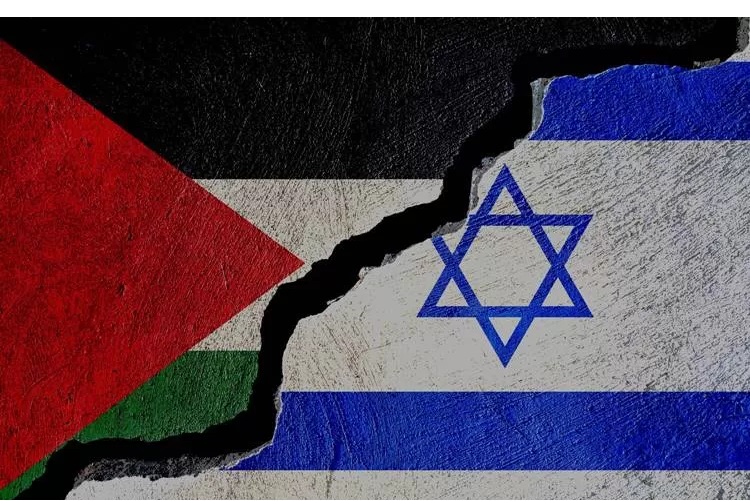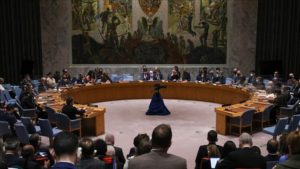OVER the past several decades, the two-state solution has often been presented as the most ideal way to resolve the prolonged conflict between Israel and Palestine. The concept envisions two nations living side by side in peace: one state for the people of Israel and an independent state for the people of Palestine.
In theory, the idea sounds hopeful. However, when looking at the facts on the ground, many analysts and international observers have begun to question whether the two-state solution is truly realistic, or if it is merely a political dream kept alive to appease global public opinion.
One fundamental reason this idea is difficult to achieve is that the two-state concept did not originate internally within Palestine but was instead created externally. The proposal was first initiated by international powers such as the UN and Western countries, particularly the United States, which have strategic interests in the Middle East.
Because it came from outside, the idea is often seen by Palestinians as an imposed agenda rather than a product of their own aspirations or internal dialogue. As a result, most Palestinians feel they lack an emotional or political connection to the concept.
Also Read: The Forty-Four-Days of Glory: Azerbaijan’s Struggle for Justice and Peace
Furthermore, the idea has never gone through a legitimate and transparent referendum process, either in Palestine or Israel. The process has been top-down: foreign governments and international institutions pressuring Palestine to accept the proposal without truly listening to the voice of the people.
This has created a deep sense of injustice. Many groups in Palestine, especially those firmly opposing Israeli occupation, see the two-state solution as a harmful compromise that weakens their struggle.
On the other hand, Israel has not embraced the two-state idea either. Most political elites, especially the dominant right-wing factions in government, reject dividing the land in a way that would require withdrawing from illegal settlements in the West Bank or relinquishing control over large portions of Palestinian territory.
They argue that establishing a Palestinian state would threaten Israel’s security and national identity. This shows that both sides actually lack the strong political will to implement the two-state concept.
Also Read: Palestine Solidarity Month: A Collective Movement for Al-Aqsa and Palestine’s Freedom
Geography also poses a major obstacle. Israeli settlement expansion in the West Bank continues year after year, leaving Palestinian territories fragmented into isolated pockets.
Practically, this makes the establishment of a sovereign and viable Palestinian state almost impossible. Luigi Scazzieri, a researcher at the Centre for European Reform, emphasizes that the growing settler population is clear evidence of Israel’s lack of seriousness in achieving a two-state solution.
Internal Palestinian issues further complicate the situation. Political divisions between major factions like Fatah and Hamas mean Palestine lacks unified and solid leadership.
When one faction agrees to a proposal, the other may strongly reject it, leaving no agreement with full legitimacy in the eyes of all Palestinians. This division weakens Palestine’s position at the negotiating table and makes it easily exploited by Israel or international mediators.
Also Read: Hassan al-Turabi: A Controversial Thinker from Sudan
Additionally, there are fundamental issues that remain permanent stumbling blocks, often called dealbreakers. Jerusalem, for instance, is claimed as the capital by both sides and is considered sacred, making fair division nearly impossible.
Other issues such as the right of return for Palestinian refugees, border control, and distribution of water resources remain unresolved points of contention.
A long-standing trust crisis has worsened the situation. Years of violence, treaty violations, and illegal settlement expansion have made both sides suspicious and reluctant to trust the commitments of the other.
Many international observers argue that the peace process, long promoted as a solution, has actually worsened the situation. The Brookings Institution, in one of its analyses, notes that developments on the ground—such as the blockade of Gaza,
Also Read: Who Exactly is the RSF Group Shaking Sudan?
Israel’s full control over Palestinian movement, and ongoing illegal settlement expansion—have made the two-state idea increasingly unrealistic. Instead of moving toward a solution, the peace process has reduced the two-state solution to a political slogan.
International pressure has also often been ineffective. Major countries like the United States frequently promote the two-state solution while simultaneously supporting Israel militarily and economically. As a result, Israel feels little incentive to engage seriously in negotiations, while Palestinians feel trapped in a situation with no viable options.
With all these factors, more and more parties openly declare that the two-state solution is effectively dead. Some experts even argue that from the start, it was merely a strategy to maintain the status quo rather than genuinely achieve a fair peace.
Israel continues to strengthen control over Palestinian territories, Palestine remains divided, and the international community appears powerless in the face of these realities.
Also Read: The Two-State Solution (Palestine–Israel) in Historical Perspective
Ultimately, the world must confront the reality honestly. The two-state solution may sound ideal and humanitarian, but without genuine political will, rebuilt trust, and real commitment from both sides, this concept will never materialize.
If the world continues to cling to false hopes, every negotiation will remain empty words that mask the suffering of the Palestinian people. Achieving true peace requires a new, realistic, fair approach that genuinely prioritizes the people who have long lived under the shadow of occupation. []
Mi’raj News Agency (MINA)
Also Read: Enchanted by K-Dramas, Dragged into Slander: Time for Muslims to Rise!

































 Mina Indonesia
Mina Indonesia Mina Arabic
Mina Arabic